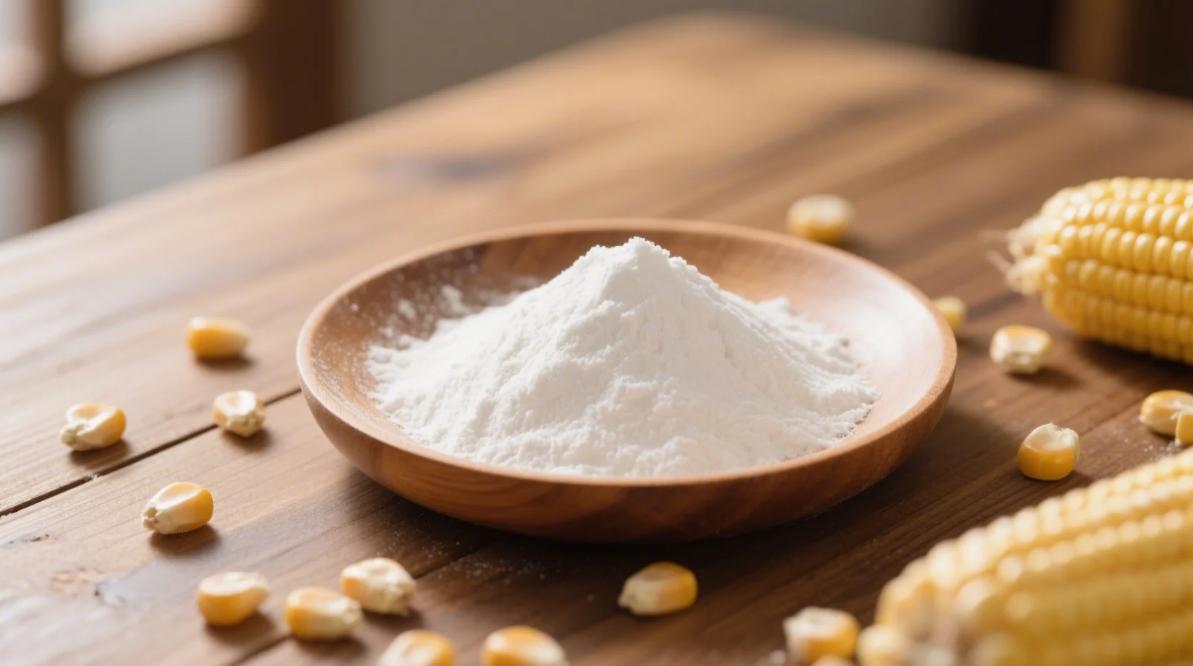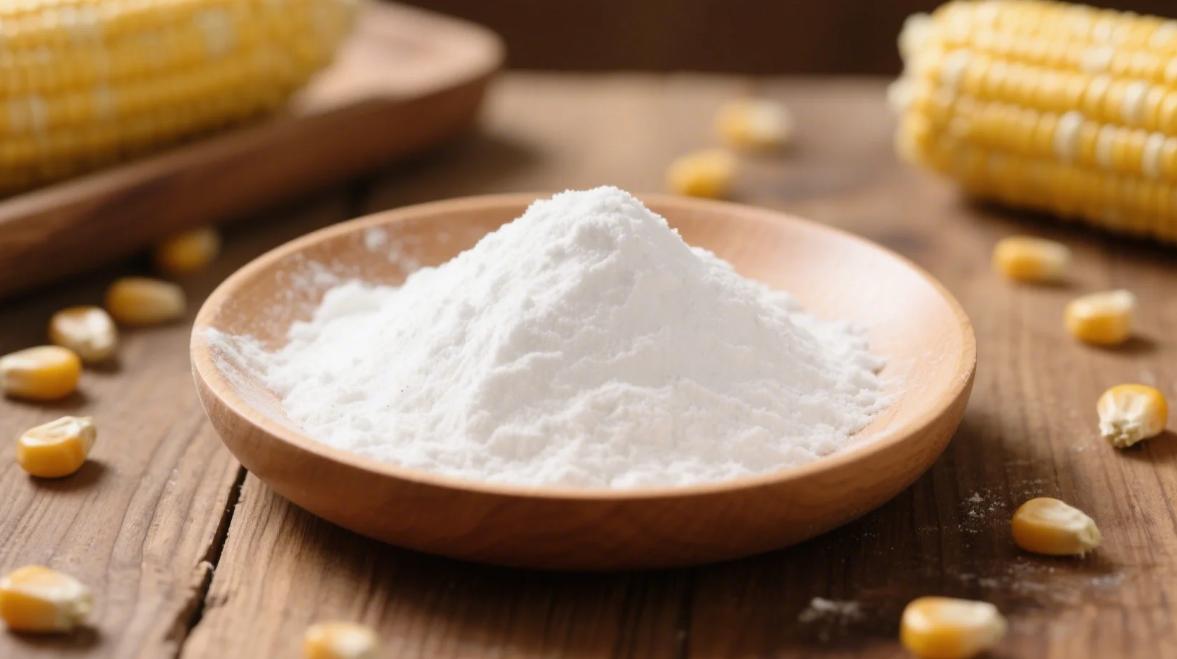In the world of plant-based ingredients, organic cornstarch and organic waxy cornstarch are rising stars, celebrated for their versatility, non-GMO credentials, and eco-friendly appeal. But while their names sound similar, these two starches cater to distinct culinary and industrial needs. From texture to sustainability, let’s unpack their differences, synergies, and why forward-thinking brands are stocking both.

The Basics: Origins & Composition
1. Organic Cornstarch
- Source: Derived from non-GMO, dent corn (Zea mays indentata).
- Starch Profile: ~25% amylose (linear starch molecules), ~75% amylopectin (branched molecules).
- Certifications: USDA Organic, EU Organic, gluten-free, Kosher.
2. Organic Waxy Cornstarch
- Source: Made from non-GMO waxy corn (Zea mays ceratina), a naturally occurring variety with a “waxy” endosperm.
- Starch Profile: Nearly 100% amylopectin (branched molecules).
- Certifications: Same as cornstarch, plus Non-GMO Project Verified.
Key Insight: The amylose/amylopectin ratio dictates their behavior under heat, cold, and shear stress.
Functional Face-Off: Performance in Action
| Property | Organic Cornstarch | Organic Waxy Cornstarch |
|---|---|---|
| Gelatinization Temp | 62–72°C (high) | 55–65°C (low) |
| Texture | Firm, opaque gels | Soft, glossy gels |
| Freeze-Thaw Stability | Prone to syneresis (weeping) | Retains texture; ideal for frozen foods |
| Shear Resistance | Breaks down under mixing | Maintains viscosity in high-shear processes |
| Acid Tolerance | Thins in acidic sauces (pH <4.5) | Stable in acidic conditions (e.g., fruit fillings) |
Applications: Where Each Shines
1. Organic Cornstarch’s Sweet Spot
- Thickening Agent: Ideal for pies, gravies, and soups requiring a sturdy, opaque texture.
- Gluten-Free Baking: Adds crispness to cookies and structure to cakes (blend with rice flour).
- Industrial Uses: Biodegradable packaging films, tablet binders in organic supplements.
2. Organic Waxy Cornstarch’s Niche
- Dairy Alternatives: Creates smooth, creamy textures in plant-based yogurts and ice creams.
- Confectionery: Perfect for gummies and marshmallows needing chewiness without gum additives.
- Ready-Meals: Sauces retain silky texture after refrigeration (e.g., organic microwave curries).
Pro Tip: Combine both in a 1:1 ratio for shelf-stable pudding mixes that stay velvety through temperature swings.
Sustainability & Supply Chain
- Water Footprint: Waxy corn requires 15% less irrigation than dent corn, thriving in drought-prone regions.
- Yield Efficiency: Waxy corn yields 10–12 tons/hectare vs. dent corn’s 8–10 tons (FAO data).
- Upcycling Potential: Both starches generate byproducts like corn gluten meal, used in organic livestock feed.
Case Study: EcoEats, a UK meal-kit brand, cut food waste by 30% using waxy cornstarch in sauces that reheat flawlessly.
Market Trends: Why Both Matter
- Clean-Label Demand: Consumers reject “modified starch” labels; organic options satisfy the “no additives” expectation.
- Plant-Based Boom: Waxy cornstarch is pivotal in mimicking dairy textures without gums or emulsifiers.
- Cost Dynamics: Organic cornstarch is cheaper (1.20/kg)butwaxycommandsapremium(2.50/kg) for its functional edge.
Choosing Wisely: A Decision Guide
- Pick Cornstarch If: You need cost-effective thickening, prefer firm textures, or work with high-heat recipes.
- Choose Waxy If: Your product faces freezing, requires glossy finishes, or needs to avoid stabilizers like xanthan gum.
Innovation Alert: Startups like StarchCycle are blending both starches with upcycled fruit fibers for zero-waste baking mixes.

Beyond Either/Or
Organic cornstarch and waxy cornstarch aren’t competitors—they’re collaborators in the clean-label revolution. By understanding their unique strengths, brands can craft products that delight palates, meet sustainability goals, and stand out on crowded shelves. Whether you’re thickening a soup or engineering a plant-based cheese, nature’s starch duo offers a recipe for success.